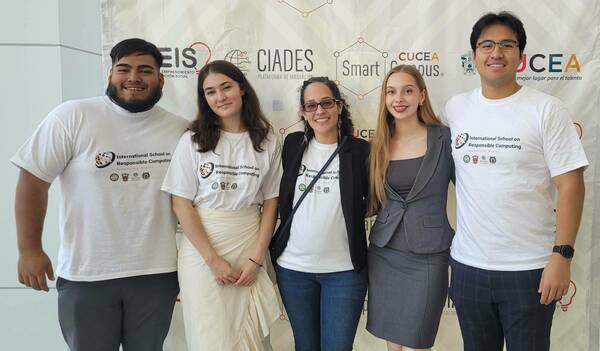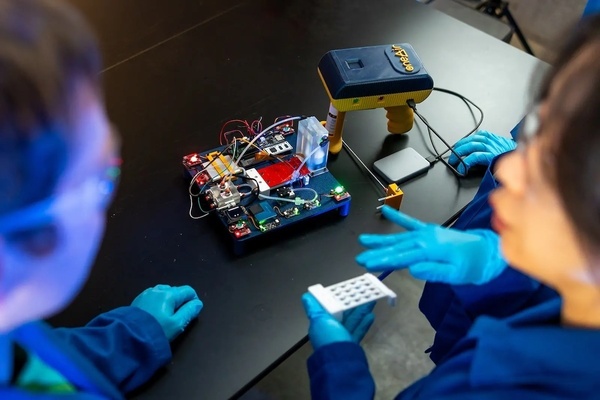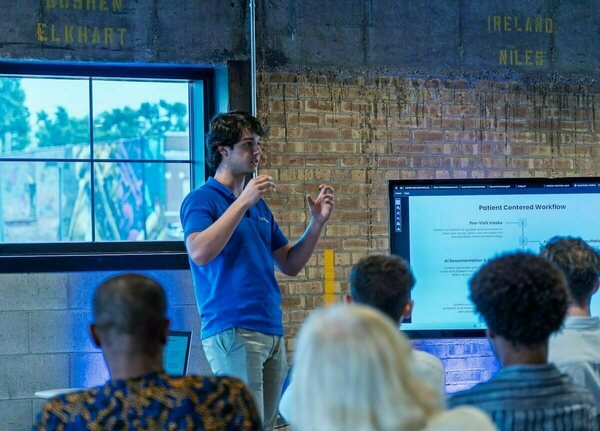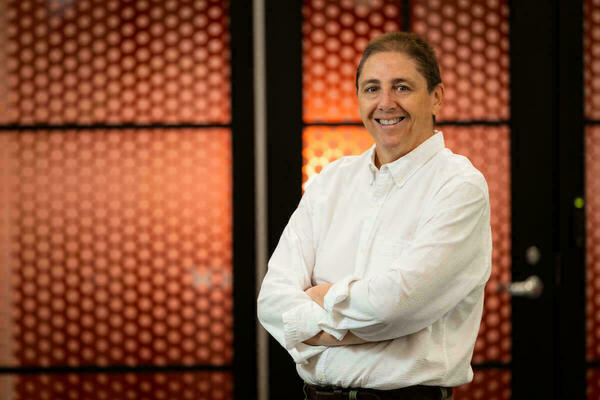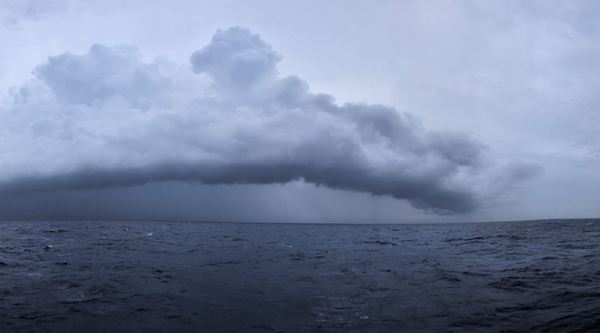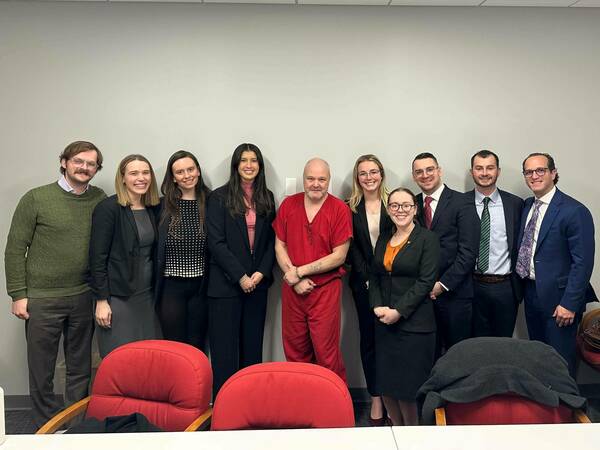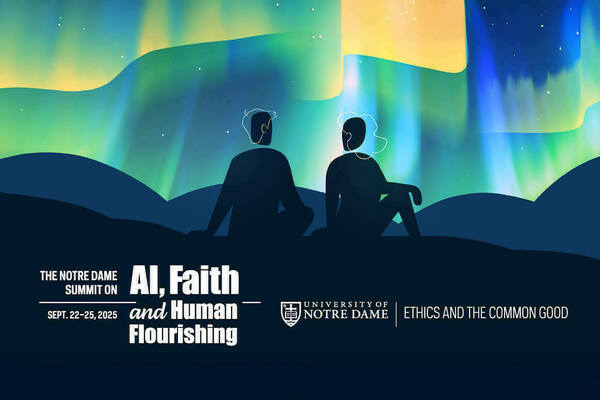Crossing borders with NDG grants: How a professor is ensuring ethics stay in the conversation about technology
As technology progresses, are the conversations about the ethics surrounding it doing the same? As an assistant professor of computer science and engineering, Karla Badillo-Urquiola is working to make sure that they do. She recognizes the challenges that universities face in trying to keep up with rapidly advancing technology, particularly when it comes to incorporating changes into the curriculum. But she also knows it’s important for students to enter their careers equipped with the knowledge of how to responsibly approach complex subjects like AI and social computing. So she found another way to expand students’ understanding.

With the help of the Notre Dame Global Mexico Faculty Grant, Badillo-Urquiola co-organized and hosted the first International School on Responsible Computing (ISRC) in Mexico. The school took place in Guadalajara, the “Silicon Valley” of Mexico, and consisted of a four-day program for faculty and students from Latin America and the United States to come together and learn about interdisciplinary and global-oriented approaches to ethical and responsible computing.
“Having events like this can support what they're already learning in the classroom, but also add more application to what's happening in the world in real time,” Badillo-Urquiola shares. She worked with a team of experts from leading universities in Mexico—Universidad de Colima, Universidad de Guadalajara, Universidad Michoacana de San Nicolas de Hidalgo, and Universidad Panamericana—to plan and execute the ISRC.
While Badillo-Urquiola had personal and professional connections in the area already, through conversations with Notre Dame Mexico Director Maria Mercedes Salmon, she learned of ND Mexico’s established partnerships with local universities, where she discovered faculty at Universidad Panamericana who were approaching responsible computing from complementary perspectives, enriching the program's interdisciplinary scope. ND Mexico Program Assistant Sofía Rivera also supported Badillo-Urquiola while she was in Mexico, helping with logistics and joining the group for the entirety of the program.

During the four days, students took courses on ethics, accessibility, and participatory design—topics that pushed students to deepen their understanding of how technology impacts society. “We talked a lot about values as a framework for thinking about ethics and how there are different types of values,” Badillo-Urquiola shares. “You have your own values, you have communal values…And then we applied that knowledge to AI since these systems reflect the values of the people that create them and the data they are trained on.”
In addition to these courses, the program included two keynote talks, given by professors who work in responsible AI, and a panel discussion that included professors and industry professionals. The program's strength came from this diversity of approaches—Mexican faculty and industry professionals brought perspectives that complemented the ND faculty, creating a more nuanced discussion. The program concluded with a poster session, in which students presented group research of their choosing, integrating what they’d learned over the past four days. “Sometimes after the school was over in the evenings, they'd all gather at the hotel lobby to work on their posters. It was rewarding to sit there with them and provide help. They were really engaged,” Badillo-Urquiola says.
"By understanding experiences different from our own, we can better grasp the global impact of the technologies we build.”
Ultimately, the ISRC presented an opportunity to explore a question that’s important to Badillo-Urquiola: How can we create a more global approach to thinking about ethics? The ISRC provides one answer—bring together students and experts from different disciplines and cultures, and let them teach and learn from each other. One student’s reflection on the program speaks to the effectiveness of this: “The shared experience of navigating a new culture or language created a powerful sense of empathy and solidarity, pushing us to grow together. By understanding experiences different from our own, we can better grasp the global impact of the technologies we build.” This intercultural approach proved essential to the discussions about ethics—different cultural perspectives revealed how values and ethical frameworks vary across contexts, making the conversations richer and more globally relevant.

From an academic and industry perspective, there’s a need for these conversations and learning. And from a student perspective, as the success of this inaugural school has demonstrated, there’s a great desire. Badillo-Urquiola and her collaborators hope to take the school to other places in Latin America, expanding the diversity of the participants and instructors and carrying the conversation further. The collaborative impact extended beyond the event itself. Shortly after, Badillo-Urquiola and her Mexican colleagues published an article, where they emphasized that “the conversations initiated at ISRC must continue, evolving into concrete actions that shape a future where technology serves humanity in a truly ethical, sustainable, and inclusive manner.”
For more information on Notre Dame Global grants, like the one that helped fund Badillo-Urquiola’s work in Mexico, visit the NDG Grants and Funding page.
Originally published by at mexico.nd.edu on August 12, 2025.
Latest Research
- Fighting for Better Virus DetectionAn electronic nose developed by Notre Dame researchers is helping sniff out bird flu biomarkers for faster detection and fewer sick birds. Read the story
- Notre Dame’s seventh edition of Race to Revenue culminates in Demo Day, a celebration of student and alumni entrepreneurship…
- Managing director brings interdisciplinary background to Bioengineering & Life Sciences InitiativeThis story is part of a series of features highlighting the managing directors of the University's strategic initiatives. The managing directors are key (senior) staff members who work directly with the…
- Monsoon mechanics: civil engineers look for answers in the Bay of BengalOff the southwestern coast of India, a pool of unusually warm water forms, reaching 100 feet below the surface. Soon after, the air above begins to churn, triggering the summer monsoon season with its life-giving yet sometimes catastrophic rains. To better understand the link between the formation of the warm pool and the monsoon’s onset, five members of the University of Notre Dame’s Environmental Fluid Mechanics Laboratory set sail into the Bay of Bengal aboard the Thomas G. Thompson, a 274-foot vessel for oceanographic research.
- Exoneration Justice Clinic Victory: Jason Hubbell’s 1999 Murder Conviction Is VacatedThis past Friday, September 12, Bartholomew County Circuit Court Judge Kelly S. Benjamin entered an order vacating Exoneration Justice Clinic (EJC) client Jason Hubbell’s 1999 convictions for murder and criminal confinement based on the State of Indiana’s withholding of material exculpatory evidence implicating another man in the murder.
- Notre Dame to host summit on AI, faith and human flourishing, introducing new DELTA frameworkThe Institute for Ethics and the Common Good and the Notre Dame Ethics Initiative will host the Notre Dame Summit on AI, Faith and Human Flourishing on the University’s campus from Monday, Sept. 22 through Thursday, Sept. 25. This event will draw together a dynamic, ecumenical group of educators, faith leaders, technologists, journalists, policymakers and young people who believe in the enduring relevance of Christian ethical thought in a world of powerful AI.



